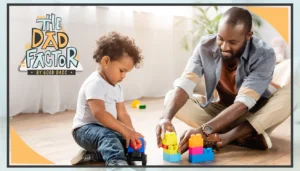
It happened again this week. Someone called and requested the opportunity to come by and talk about why I was involved with starting Good Dads. Why would a woman who is a mother and grandmother attempt to launch such a challenging program focused on men?
Some days I ask myself the same question. Way more than once or twice, when I was going through a particularly discouraging period, I thought about letting it go . . . giving it up . . . moving on to something easier and less frustrating. From time to time friends and family have made similar suggestions. This is not to say they are barriers in terms of caring about strong families (they do care, I know), but rather that it’s not always easy to comprehend why healthy relationships are so important to our well-being.
Detroit, Michigan: “How often do you have to have sex to get pregnant?”
When I landed my first teaching job at a high school in Detroit, Michigan, I had the opportunity to teach the first ever “Family Life and Child Development” class to be offered in that school. Although it was an elective, enrollment for the class maxed out with a good proportion of both male and female students. When the class period ended, students followed me down the hall asking questions about relationships and family life. I wondered why this critical area of life—one more central to most students’ lives than geometry or English literature—received so little attention. I stay at it because I believe students today, just like those 30+ years ago, still want to know how to have a happy, secure future with someone they love.
Southern Illinois: “I wish my daddy wouldn’t drink so much.”
As a second grade teacher in a small town in southern Illinois, I saw my students’ progress impacted by how their parents’ relationship. If the parents were able to provide a safe and stable home, the children did well. If they were unable to do this, the children struggled. It occurred to me then that if I really wanted to do something of lasting consequence for children, I would need to work with their parents. Unfortunately, most of our work with school-age parents focuses on “parenting skills,” with little attention paid to strengthening the adult relationship. I stay at it because I believe children do better in school when both fathers and mothers can provide a stable home in which they can grow and develop.
Northern Illinois: “I hate it when my mommy and daddy fight.”
Working as a family therapist, I witnessed how much and how often both children and adults suffered as the result of poor communication, inadequate conflict resolution skills, and unhealthy relationship choices. I observed just how regularly children were privy either to their parents’ screaming matches or their long, cold, stony silences. I sat with clients when marriages ended through the sadness of betrayal and the defeat of divorce. In some cases it was necessary; in many, it was not. I keep at it because I continue to see the need for resources and skills that serve as a proactive measure against family dissolution.

Springfield, Missouri:
Why Good Dads? After years of teaching, advanced degrees, clinical work, and supervision experience, I came to the conclusion that reaching men, especially fathers, was a critical factor to almost any sustained success we might have in improving outcomes for children. We can accomplish things without dads, but it’s harder. If we can help dads feel more successful in their role, more engaged with their children, I believe it will make a world of difference.




